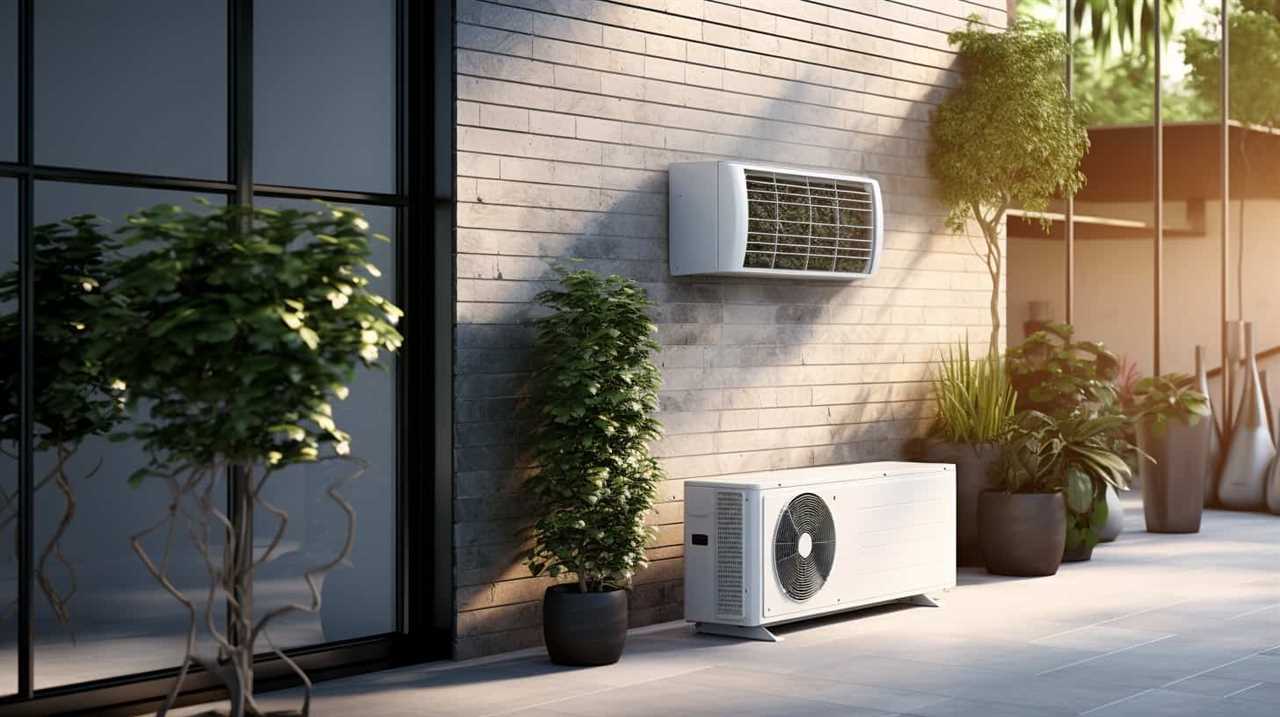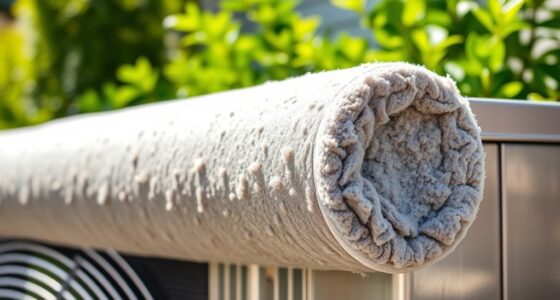We have perfected modern innovations in heat pump systems. Our expertise will lead you through the development of heat pump technology, assisting you in comprehending the efficiency and performance of these systems.
We’ll explore advanced compressor technology, innovations in refrigerants, and the benefits of variable speed heat pump systems.
Our smart controls and energy management solutions will optimize your heat pump’s performance while integrating seamlessly with renewable energy sources.
Get ready to master the world of heat pumps with us.

Key Takeaways
- Evolution of heat pump technology driven by efficiency and environmental-friendliness
- Importance of considering COP and HSPF in understanding heat pump efficiency and performance
- Advanced compressor technology enhances efficiency, reliability, and durability
- Innovations in heat pump refrigerants contribute to reducing greenhouse gas emissions and protecting the ozone layer
The Evolution of Heat Pump Technology
We have witnessed significant advancements in heat pump technology over the years. The evolution of heat pump technology has been driven by the need for more efficient and environmentally-friendly solutions.
One of the key areas of improvement has been in the development of heat pump refrigerants. Traditional refrigerants, such as chlorofluorocarbons (CFCs), were found to have a detrimental impact on the ozone layer. As a result, new refrigerants, such as hydrochlorofluorocarbons (HCFCs) and hydrofluorocarbons (HFCs), were introduced that had lower ozone-depleting potential.
However, these refrigerants were still found to have a high global warming potential. In recent years, advancements in heat pump refrigerants have focused on the use of natural refrigerants, such as hydrocarbons and carbon dioxide, which have significantly lower global warming potential.
These advancements haven’t only improved the environmental impact of heat pumps but have also led to higher energy efficiency and better overall performance.
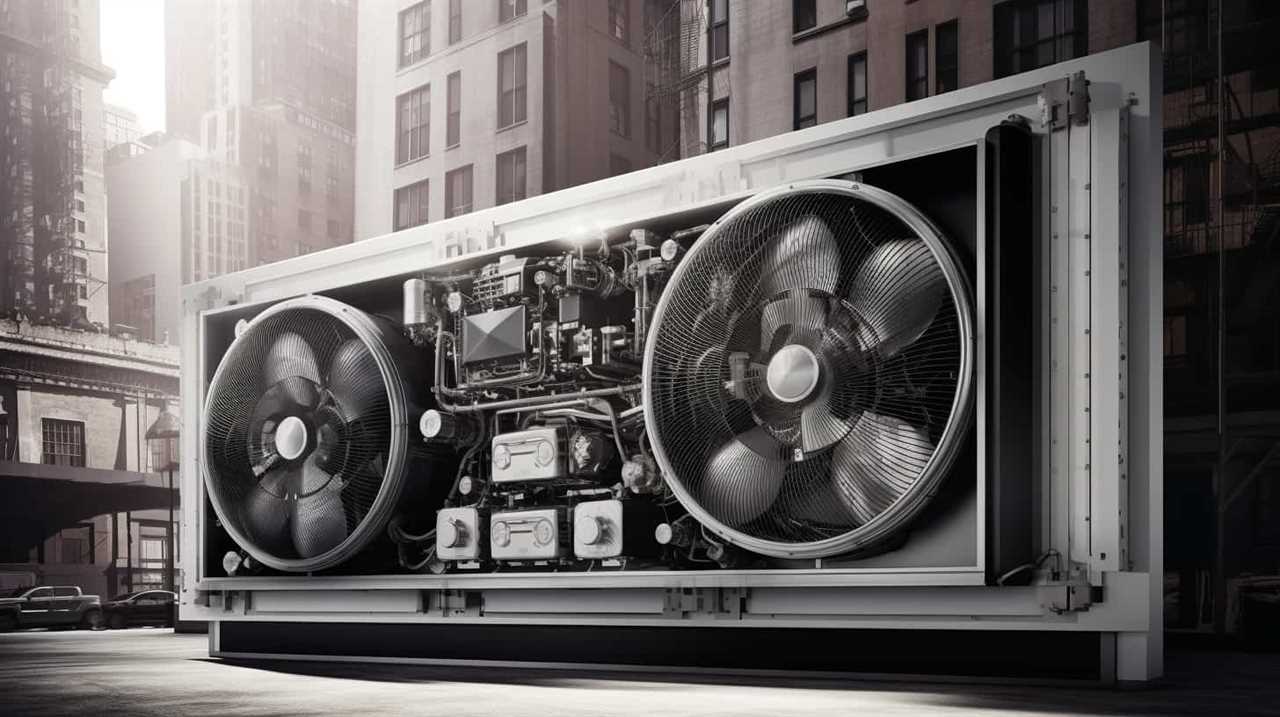
Understanding Heat Pump Efficiency and Performance
To fully comprehend the efficiency and performance of heat pumps, it’s essential to consider both the COP (Coefficient of Performance) and the HSPF (Heating Seasonal Performance Factor). These metrics are used to evaluate the effectiveness and energy efficiency of heat pumps.
The COP measures the ratio of heat output to electrical energy input, providing an indication of how efficiently the heat pump converts energy into heat. Meanwhile, the HSPF takes into account the COP along with factors such as defrost cycles and standby losses, giving a more comprehensive assessment of the heat pump’s performance over an entire heating season.
Both the COP and HSPF are important in determining if a heat pump meets the necessary efficiency standards. Understanding these heat pump performance metrics is crucial in selecting the most efficient and effective system for serving customers.
Now, let’s delve into the next section, which explores the advanced compressor technology in modern heat pumps.
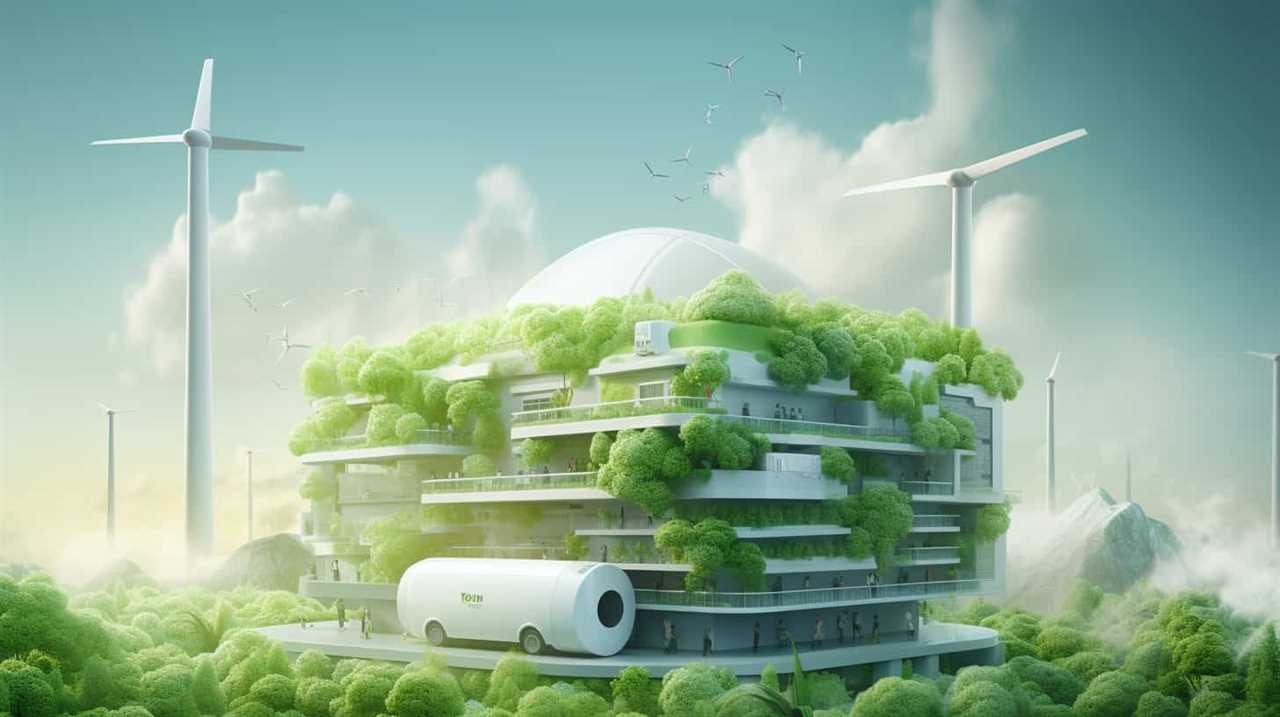
Advanced Compressor Technology in Modern Heat Pumps
But before we delve into advanced compressor technology in modern heat pumps, let’s first understand the importance of efficient and effective heat pump performance metrics. These metrics are crucial in evaluating the overall performance of a heat pump system and identifying areas for improvement.
Now, let’s explore the advancements in compressor technology that contribute to heat pump performance optimization:
-
Advanced compressor design: Modern heat pumps employ innovative compressor designs that enhance efficiency and reliability. These designs incorporate technologies such as variable speed compressors, which allow the system to adjust its capacity based on the heating or cooling demands of the space.
-
Enhanced efficiency: Advanced compressors utilize improved motor technologies and advanced control algorithms to optimize energy consumption and reduce operating costs.
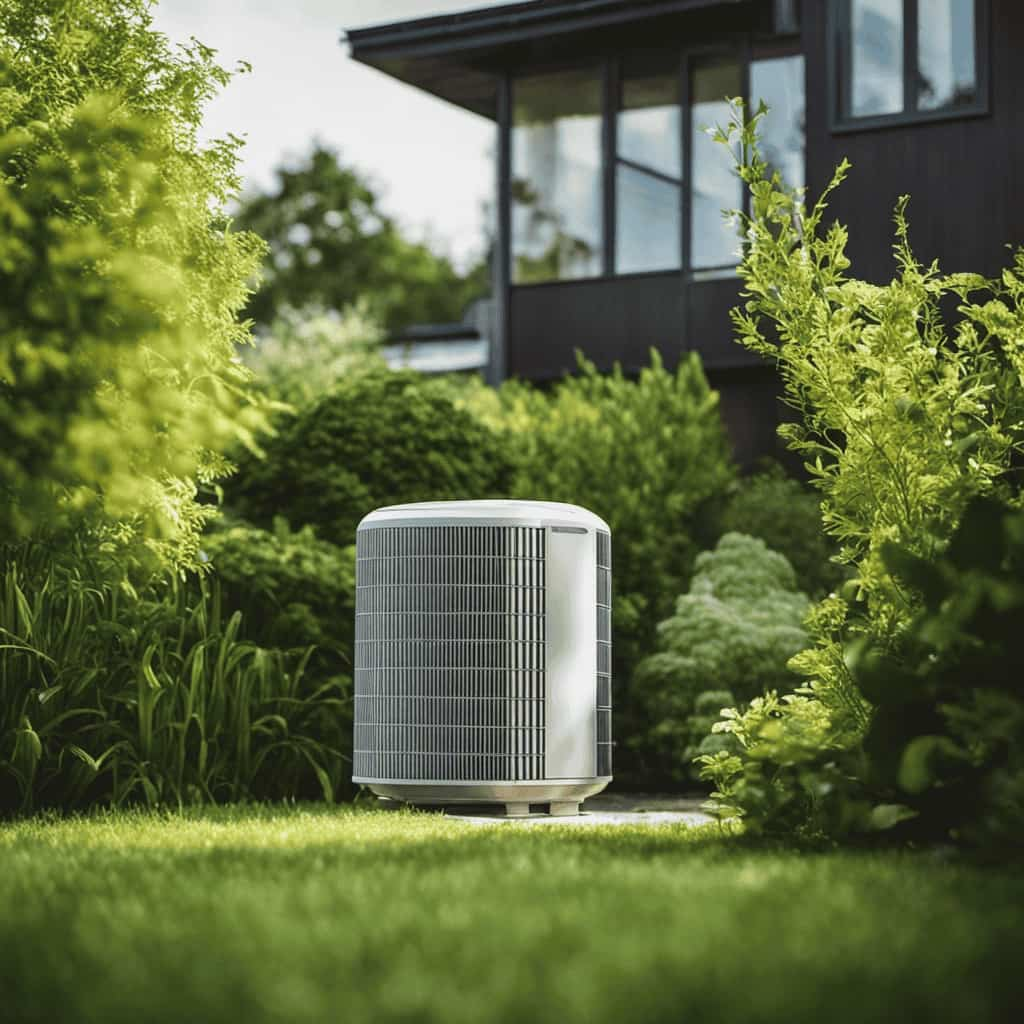
-
Improved durability: Heat pumps with advanced compressor technology are designed to withstand extreme conditions, ensuring long-lasting performance and minimal maintenance requirements.
-
Enhanced performance in low ambient temperatures: Advanced compressors are equipped with features that enable heat pumps to operate efficiently even in cold climates, providing reliable heating during winter months.
Innovations in Heat Pump Refrigerants
One of the key innovations in heat pump technology is the use of new refrigerants, which offer improved performance and environmental benefits. Heat pump refrigerant regulations have become increasingly stringent, prompting the development of sustainable heat pump refrigerants that have lower global warming potential (GWP) and ozone depletion potential (ODP) compared to traditional refrigerants. These new refrigerants are designed to minimize the impact on the environment while still providing efficient heating and cooling capabilities. Here is a table highlighting some of the sustainable heat pump refrigerants currently available:
| Refrigerant | GWP | ODP |
|---|---|---|
| R-32 | 675 | 0 |
| R-410A | 2088 | 0 |
| R-407C | 1774 | 0 |
| R-1234ze(E) | <1 | 0 |
| R-1234yf | <1 | 0 |
These refrigerants not only comply with regulations but also contribute to a greener future by reducing greenhouse gas emissions and protecting the ozone layer.

Exploring Variable Speed Heat Pump Systems
Exploring the capabilities of variable speed heat pump systems, we can maximize energy efficiency and optimize comfort levels in our homes. Variable speed technology allows heat pumps to adjust their operating speeds based on the heating or cooling demands of a space. This flexibility provides several energy-saving features that benefit both homeowners and the environment:
-
Enhanced Energy Efficiency: Variable speed heat pumps can operate at lower speeds for longer periods of time, reducing energy consumption and improving overall efficiency.
-
Precise Temperature Control: These systems can maintain a consistent temperature by making small adjustments to the heating or cooling output, resulting in improved comfort levels.
-
Quieter Operation: Variable speed technology allows heat pumps to operate at lower speeds, resulting in reduced noise levels compared to traditional systems.
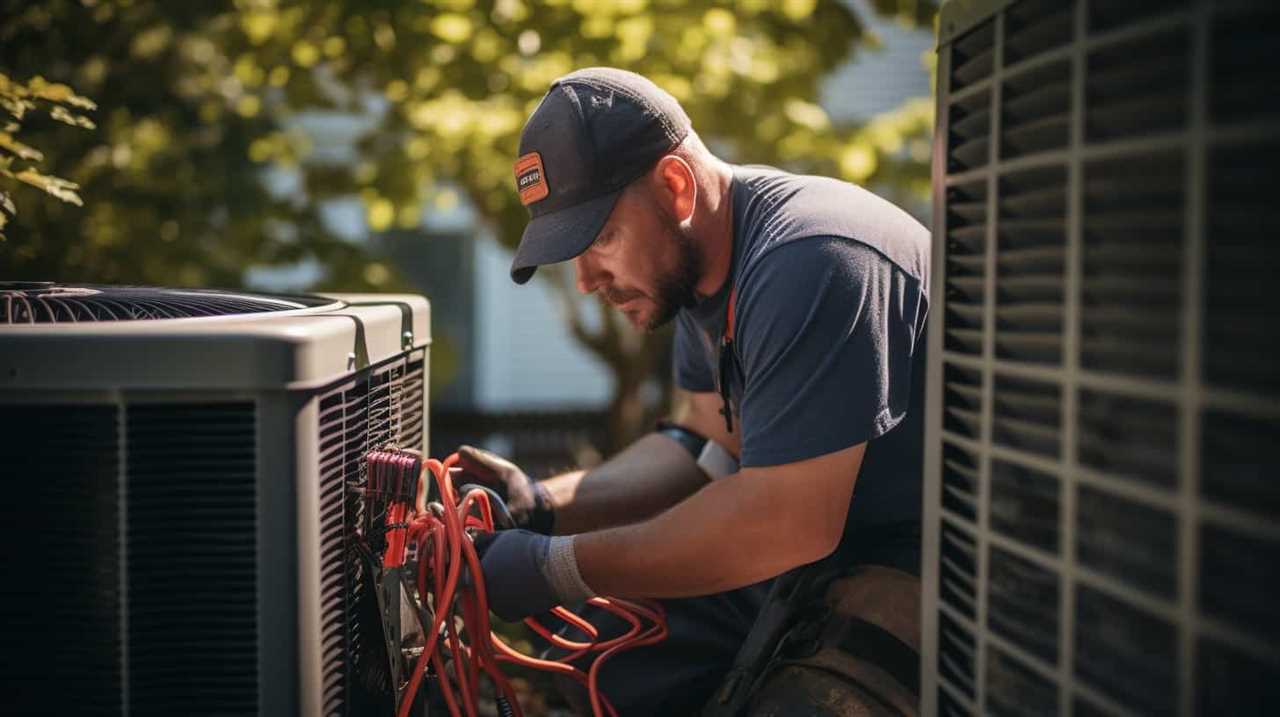
-
Extended Lifespan: The ability to operate at lower speeds reduces wear and tear on the system, leading to a longer lifespan and lower maintenance costs.
By incorporating variable speed heat pump systems into our homes, we can enjoy the benefits of increased energy efficiency and improved comfort levels while reducing our carbon footprint.
Moving forward, let’s explore the next section on enhancing heat transfer in modern heat pumps.
Enhancing Heat Transfer in Modern Heat Pumps
To optimize the performance of modern heat pumps, we can enhance heat transfer through various innovative techniques. Improving heat transfer efficiency is crucial for maximizing the effectiveness of heat pump systems.
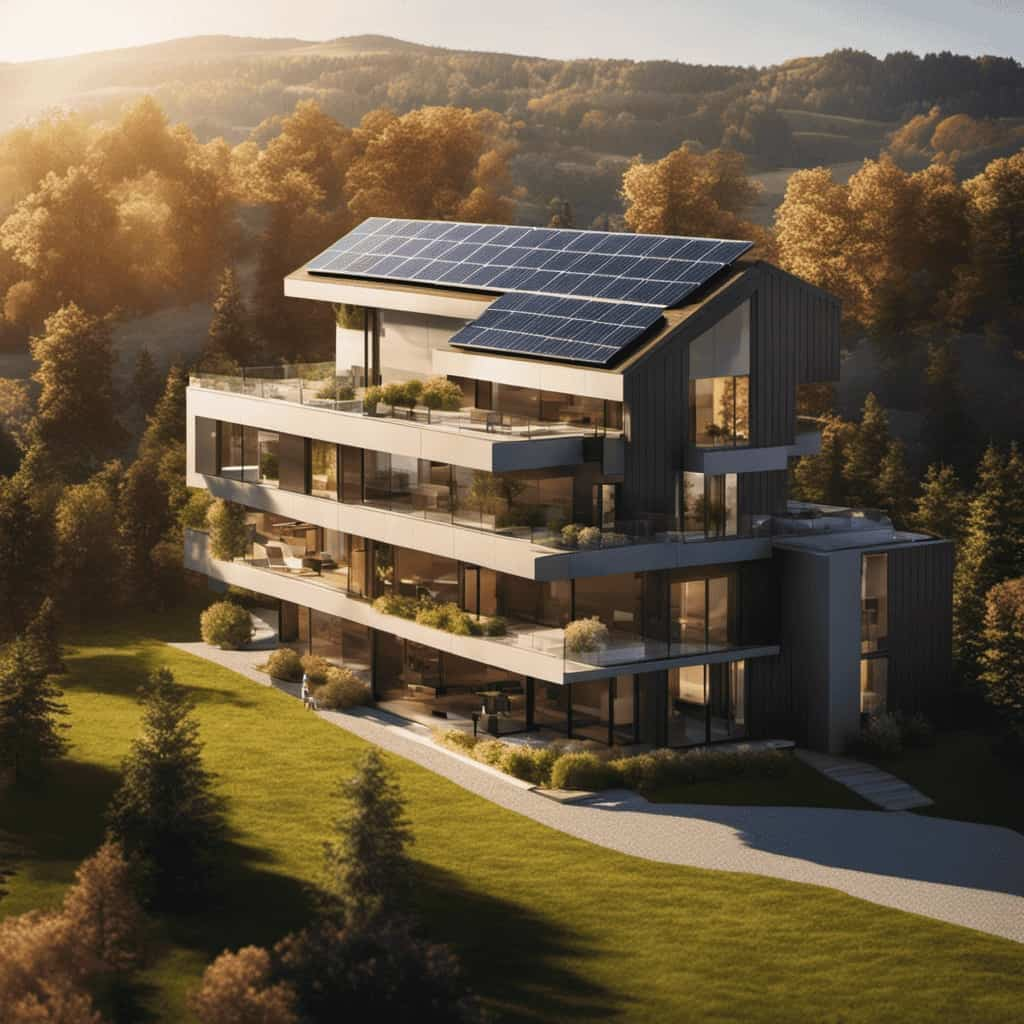
One way to achieve this is by implementing novel heat exchanger designs. Traditional heat exchangers have limitations in terms of heat transfer efficiency due to factors such as limited surface area and inefficient fluid flow patterns. However, recent advancements have led to the development of more efficient heat exchanger designs.
These designs incorporate features such as enhanced surface area, improved fluid flow paths, and optimized heat transfer surfaces. By utilizing these innovative heat exchanger designs, heat transfer efficiency can be significantly improved, resulting in better overall performance of modern heat pump systems.
Smart Controls and Energy Management in Heat Pump Systems
Smart controls and energy management systems are essential components of modern heat pump systems. These innovative features offer energy-saving benefits by optimizing the operation of the heat pump and ensuring efficient use of resources.
Improved temperature regulation allows for precise control and comfort, while remote monitoring capabilities enable users to monitor and adjust their heat pump systems from anywhere, maximizing convenience and control.

Energy-Saving Smart Controls
We are implementing energy-saving controls to improve the efficiency of heat pump systems. Smart thermostats are a key component of these controls, allowing for precise temperature control and energy management. By analyzing energy consumption patterns, smart thermostats can optimize the operation of the heat pump system, reducing energy waste and lowering utility costs.
Here are four key benefits of energy-saving smart controls:
-
Enhanced Comfort: Smart thermostats monitor and adjust temperature settings based on occupancy and user preferences, ensuring a comfortable living environment at all times.
-
Energy Efficiency: Through advanced algorithms and machine learning, smart controls optimize the heat pump system’s operation, reducing energy consumption and promoting sustainability.
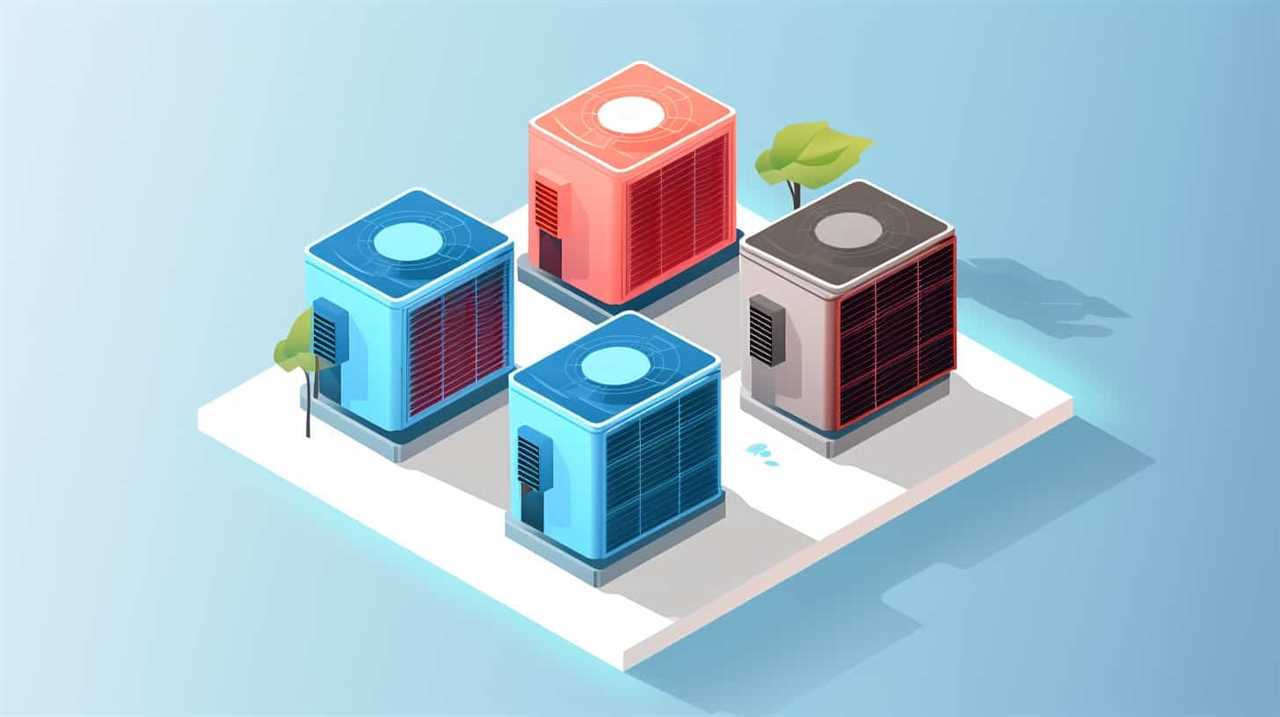
-
Cost Savings: By intelligently managing energy usage, smart controls can significantly lower utility bills, leading to long-term cost savings for homeowners.
-
Remote Access and Control: Smart controls allow users to manage and monitor their heat pump system remotely, providing convenience and flexibility.
With energy-saving smart controls in place, we can now explore the next section on improved temperature regulation.
Improved Temperature Regulation
Our goal is to achieve precise and efficient temperature regulation in heat pump systems through the use of advanced controls and energy management techniques. By implementing these innovations, we can greatly improve energy efficiency and promote sustainable heating solutions.
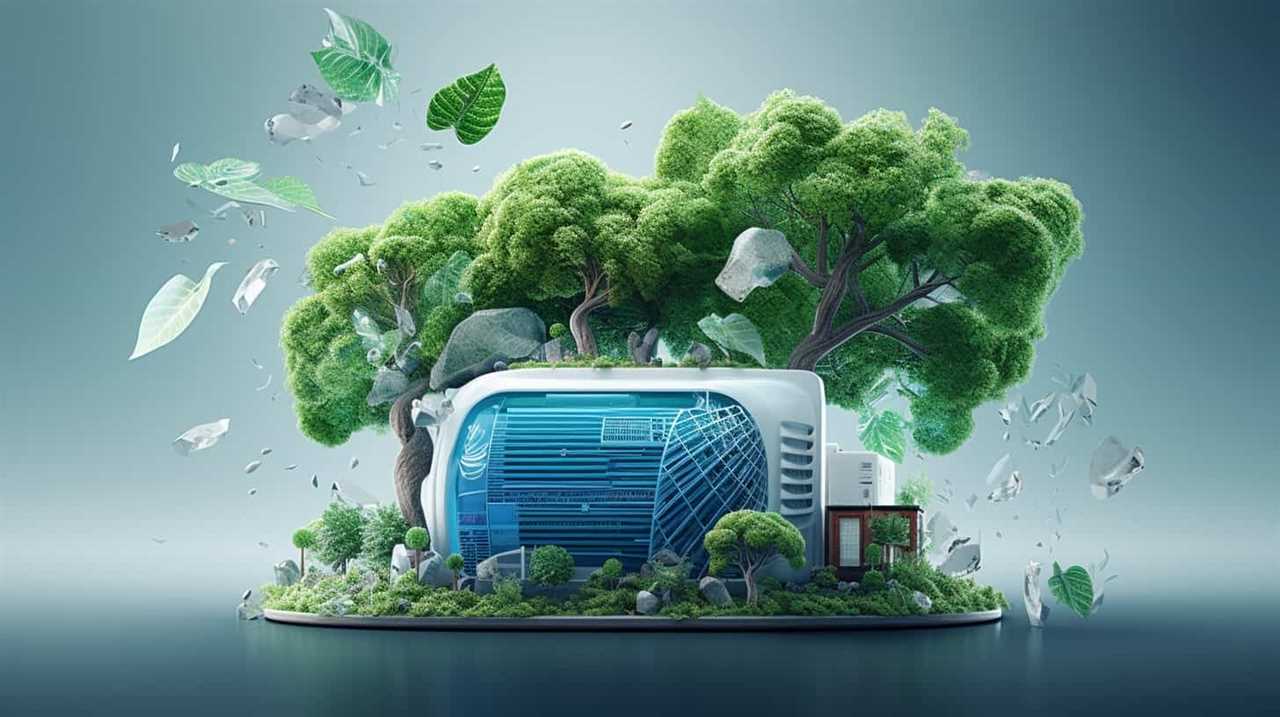
Smart controls play a crucial role in this process, allowing us to monitor and adjust the temperature settings with precision. These controls use sensors to gather data on indoor and outdoor conditions, enabling the heat pump system to optimize its performance and minimize energy consumption.
Additionally, energy management techniques help regulate the heat pump’s operation based on real-time energy demand and availability. By utilizing these advanced technologies, we can ensure that heat pump systems operate at their highest efficiency, providing optimal temperature regulation while minimizing energy waste.
Remote Monitoring Capabilities
By utilizing remote monitoring capabilities, we can effectively monitor and manage heat pump systems in real-time, ensuring optimal performance and energy efficiency. This technology allows us to collect valuable data on system operation, which can then be analyzed to identify patterns and trends. With this data analysis, we can gain insights into the system’s performance and energy consumption, enabling us to make informed decisions regarding maintenance and optimization.
Additionally, remote monitoring enables predictive maintenance, allowing us to detect potential issues before they cause a system failure. By addressing these issues proactively, we can minimize downtime and reduce repair costs. The ability to remotely monitor and manage heat pump systems not only improves overall performance but also enhances customer satisfaction by providing a reliable and efficient solution.
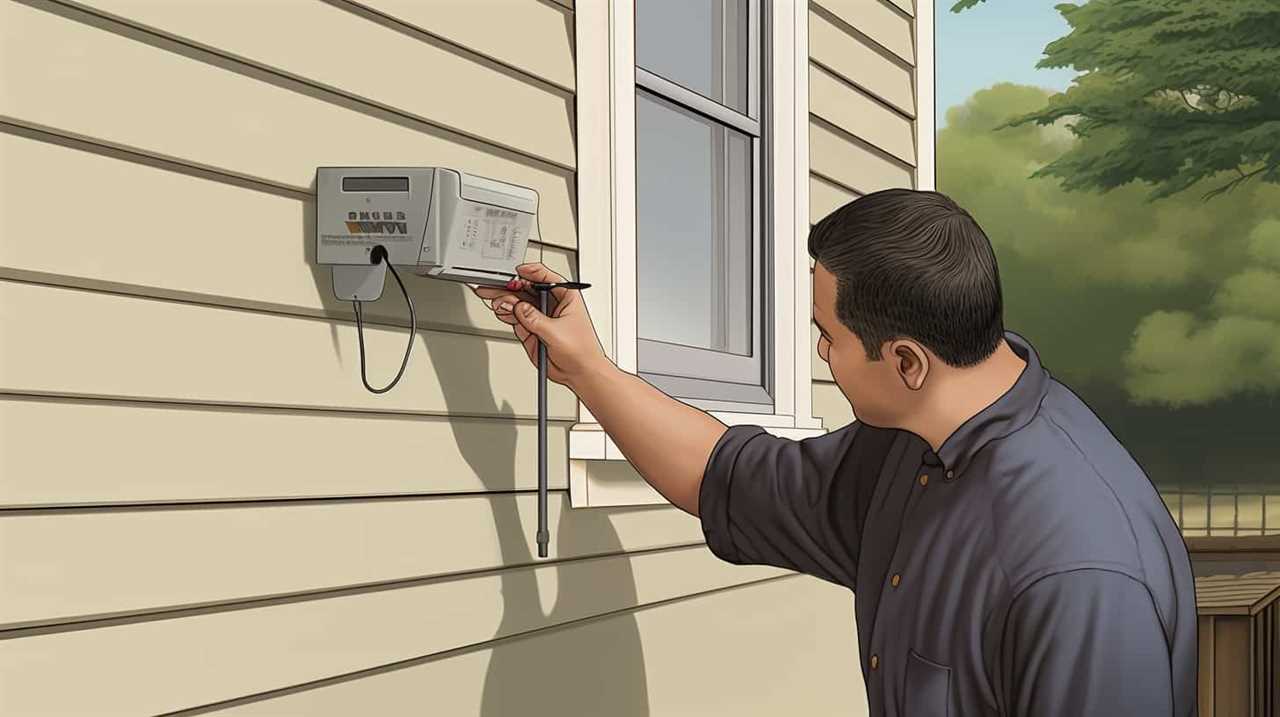
With the foundation of remote monitoring capabilities in place, let’s now explore the integration of heat pumps with renewable energy sources.
Heat Pump Integration With Renewable Energy Sources
When it comes to heat pump systems, integrating renewable energy sources offers numerous benefits.
Firstly, it allows for a reduction in carbon emissions and dependence on fossil fuels, making it a more sustainable and environmentally friendly option.
Secondly, the integration of renewables can significantly increase the energy efficiency of heat pump systems, resulting in lower energy costs for users.

Lastly, the growing market for renewable energy presents opportunities for innovation and expansion in the heat pump industry.
Benefits of Renewable Integration
Renewable integration offers numerous benefits when incorporating heat pumps with renewable energy sources. By combining these two technologies, we can achieve greater efficiency and environmental sustainability in our energy systems.
Here are four key advantages of renewable integration:
-
Reduced carbon emissions: Heat pumps, when powered by renewable energy sources such as solar or wind, produce significantly lower carbon emissions compared to traditional heating systems. This helps combat climate change and improve air quality.

-
Energy cost savings: Integrating heat pumps with renewable energy sources can lead to substantial energy cost savings. Renewable energy is often cheaper and more stable in price compared to fossil fuels, resulting in long-term financial benefits for homeowners and businesses.
-
Energy independence: By harnessing renewable energy sources, we become less reliant on finite fossil fuel resources. This enhances energy security and reduces our dependence on external energy suppliers.
-
Increased resilience: Renewable integration strengthens the resilience of our energy systems. Distributed renewable energy sources, combined with heat pumps, create a decentralized and robust energy infrastructure, making it more resilient to disruptions.
Energy Efficiency Advantages
Our energy efficiency is greatly enhanced through the integration of heat pumps with renewable energy sources.
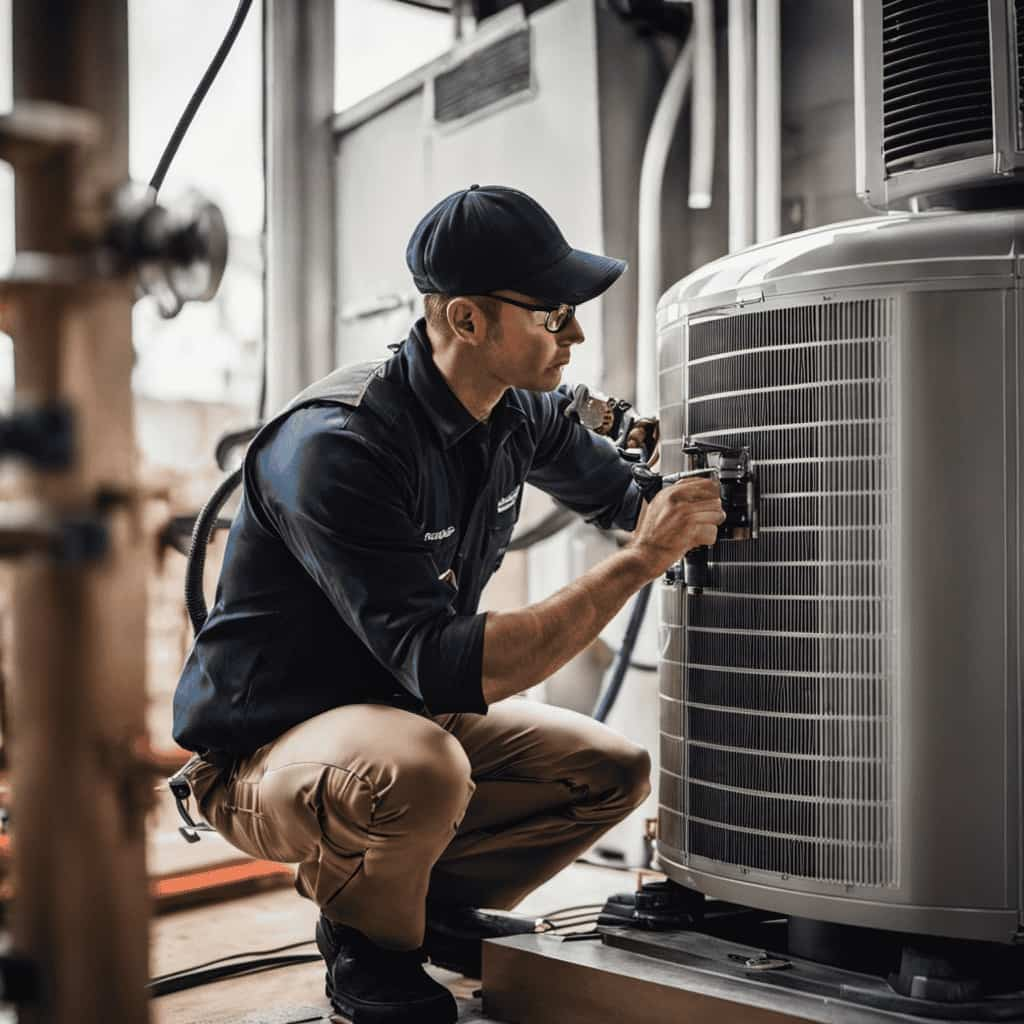
By combining these two technologies, we can achieve significant energy savings and reduce our environmental impact.
Heat pumps are highly efficient systems that can extract heat from the air, ground, or water and transfer it to heat or cool a space.
When paired with renewable energy sources such as solar or wind power, the heat pump’s efficiency is further maximized.
This integration allows us to tap into clean, renewable sources of energy and reduces our reliance on fossil fuels.
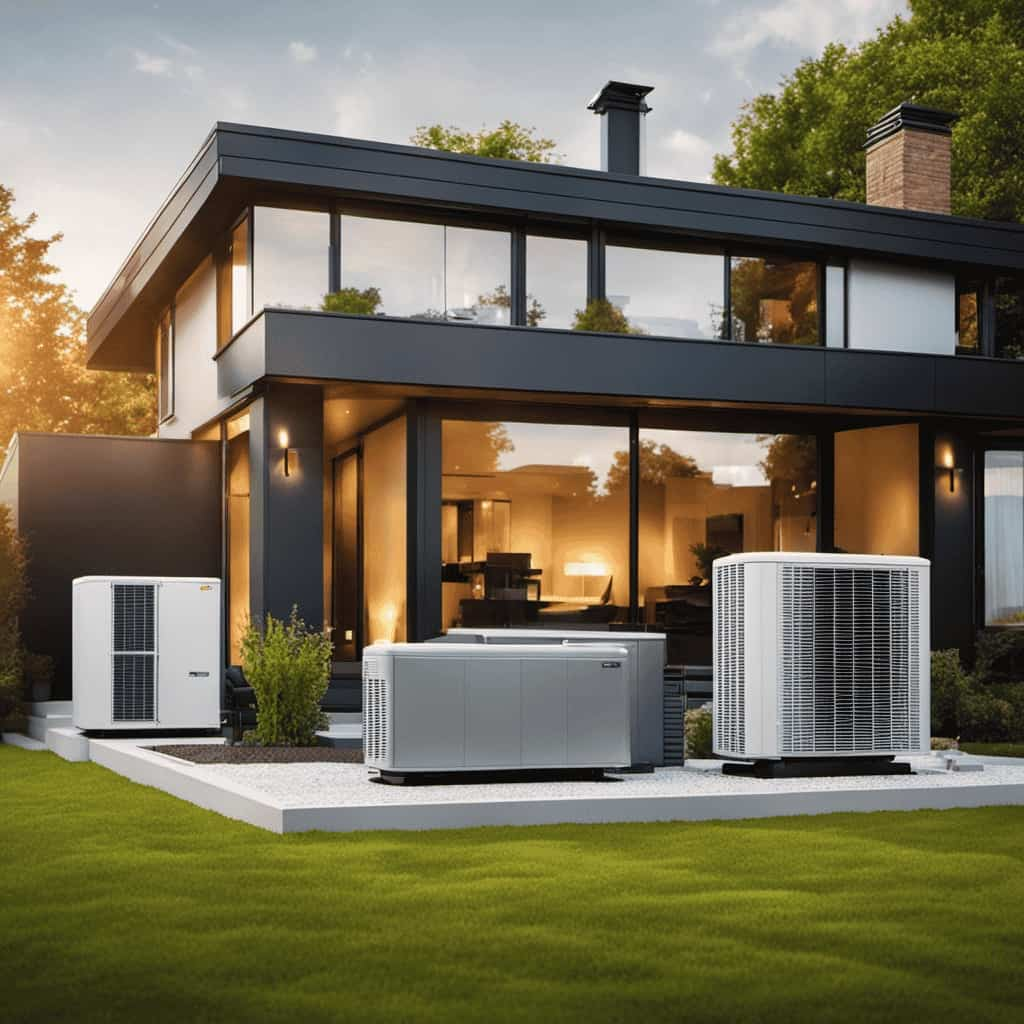
Furthermore, an environmental impact assessment can be conducted to evaluate the overall benefits of this integration, considering factors such as carbon emissions reduction and energy consumption.
Future Market Opportunities
We can explore future market opportunities by integrating heat pumps with renewable energy sources, maximizing energy efficiency and reducing environmental impact. This integration is crucial for meeting the increasing demand for sustainable heating and cooling solutions. Here are four key points to consider:
-
Increased market demand: As the world shifts towards renewable energy sources, the demand for heat pumps that can integrate with these sources will continue to grow. This presents a significant opportunity for future market growth.
-
Technological advancements: Emerging technologies, such as geothermal heat pumps and solar thermal systems, offer innovative ways to harness renewable energy for heat pump operation. These advancements enhance the performance and efficiency of heat pumps, further driving market growth.

-
Government incentives and policies: Governments worldwide are implementing various incentives and policies to encourage the adoption of renewable energy technologies. These initiatives create a favorable environment for the integration of heat pumps with renewable energy sources and contribute to future market expansion.
-
Environmental benefits: Heat pump integration with renewable energy sources significantly reduces greenhouse gas emissions and reliance on fossil fuels. This environmental advantage appeals to consumers who prioritize sustainability and encourages market growth.
As we consider the future market opportunities for heat pump integration with renewable energy sources, it’s essential to also discuss the design and installation considerations that play a vital role in maximizing the efficiency and effectiveness of these systems.
Heat Pump System Design and Installation Considerations
When designing and installing a heat pump system, it’s important to consider various factors that can impact its performance and efficiency. Two key considerations are heat pump system sizing and heat pump system zoning.
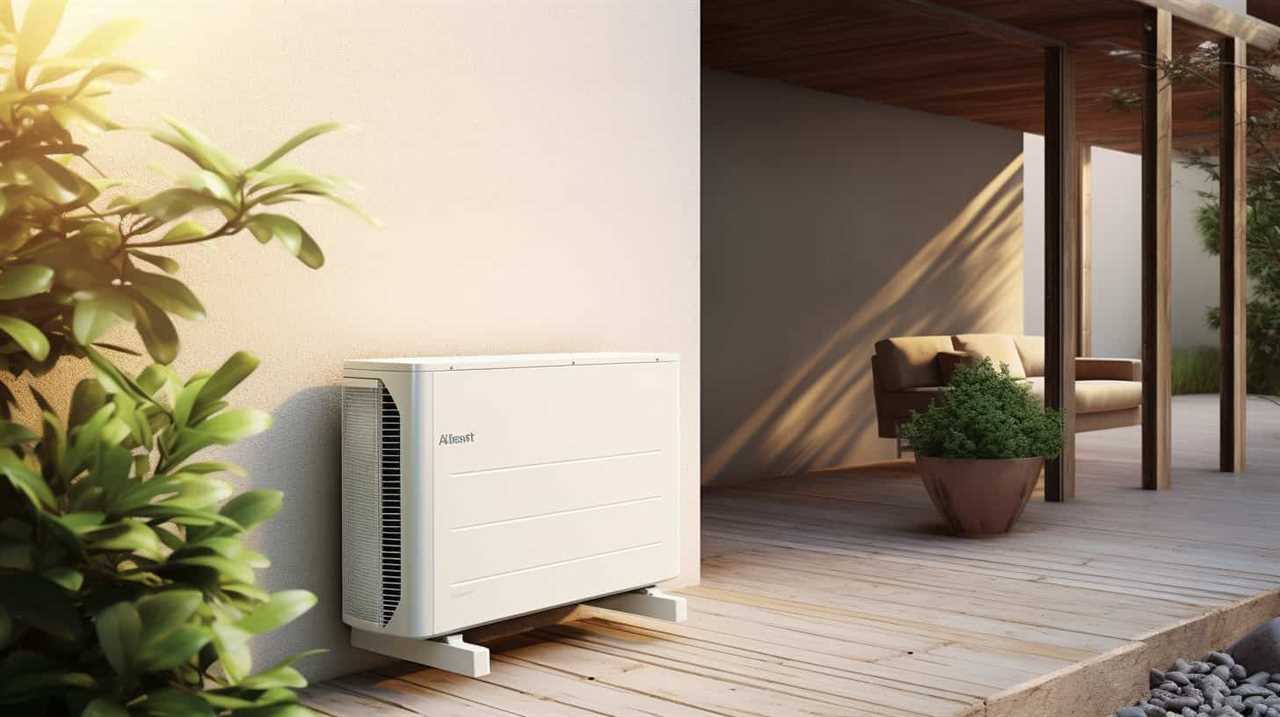
Heat pump system sizing involves properly determining the size and capacity of the system based on the heating and cooling load of the building. A system that’s too small will struggle to meet the demand, while a system that’s too large will cycle on and off frequently, leading to inefficiency and increased wear and tear.
Heat pump system zoning, on the other hand, involves dividing the building into different zones and controlling the temperature independently in each zone. This allows for greater comfort and energy efficiency by only heating or cooling the areas that are occupied.
Properly sizing and zoning the heat pump system are essential for optimizing its performance, efficiency, and overall customer satisfaction.
Troubleshooting and Maintenance Tips for Heat Pump Systems
As we delve into the subtopic of ‘Troubleshooting and Maintenance Tips for Heat Pump Systems’, it’s essential to understand the common issues and their fixes that often arise with these systems.
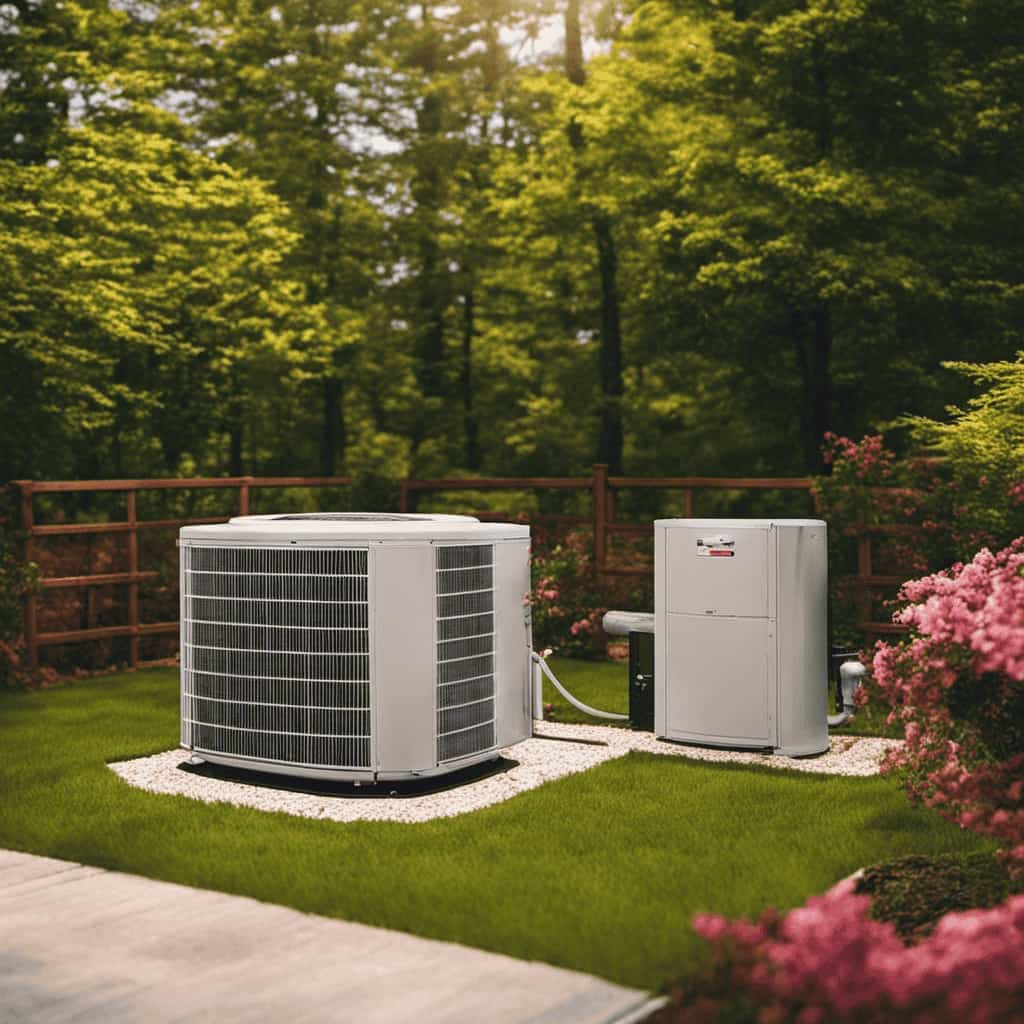
Additionally, a preventive maintenance checklist can help ensure the optimal performance and longevity of the heat pump system.
To provide expert troubleshooting advice, we’ll explore key troubleshooting techniques and strategies to identify and resolve issues efficiently.
Common Issues and Fixes
Our heat pump systems often encounter common issues that require troubleshooting and regular maintenance for optimal performance. Here are some common issues and their fixes that can help you address these problems effectively:
- Insufficient heating or cooling:
- Check if the thermostat is set correctly and the temperature is adjusted accordingly.
- Ensure that the air filters are clean and replace them if necessary.
- Also, check for any obstructions in the outdoor unit that may be hindering airflow.
- Strange noises:
- If you hear unusual noises like grinding or banging, it could indicate a problem with the motor or fan.
- Inspect the fan blades and motor for any damage and replace them if needed.
- Frequent cycling:
- If your heat pump frequently turns on and off, it could be due to a faulty thermostat or an issue with the refrigerant levels.
- Check the thermostat settings and have a professional inspect and recharge the refrigerant if necessary.
- Ice buildup:
- Ice formation on the outdoor unit can indicate a problem with the defrost cycle or airflow.
- Ensure that the defrost cycle is functioning properly and check for any obstructions in the outdoor unit.
By addressing these common issues and implementing appropriate fixes, you can ensure that your heat pump system operates efficiently.
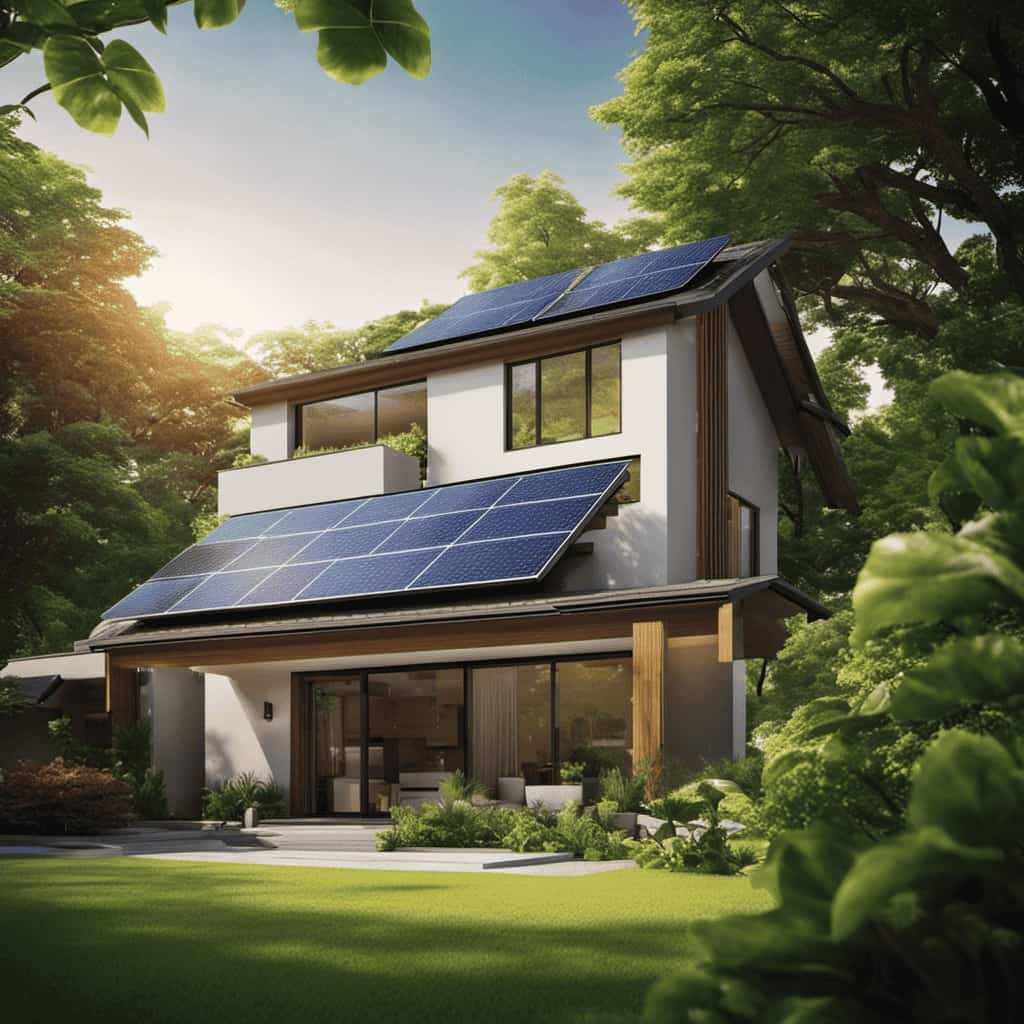
Now, let’s move on to the next section, where we’ll discuss a preventive maintenance checklist to keep your heat pump system in top condition.
Preventive Maintenance Checklist
To ensure optimal performance, we recommend following a preventive maintenance checklist and implementing troubleshooting and maintenance tips for your heat pump system. Regular maintenance is essential to keep your system running efficiently and prevent costly breakdowns. Here are some maintenance best practices to include in your preventive maintenance schedule:
| Maintenance Task | Frequency | Action Required |
|---|---|---|
| Clean or replace filters | Monthly | Remove and clean reusable filters, replace disposable ones |
| Check refrigerant levels | Annually | Ensure proper refrigerant levels and top-up if necessary |
| Inspect and clean coils | Annually | Remove debris and buildup from coils for efficient heat transfer |
Expert Troubleshooting Advice
We can troubleshoot and provide maintenance tips for heat pump systems to help you address common issues and keep your system running smoothly.
Here are some expert troubleshooting techniques to help you troubleshoot and resolve common problems:
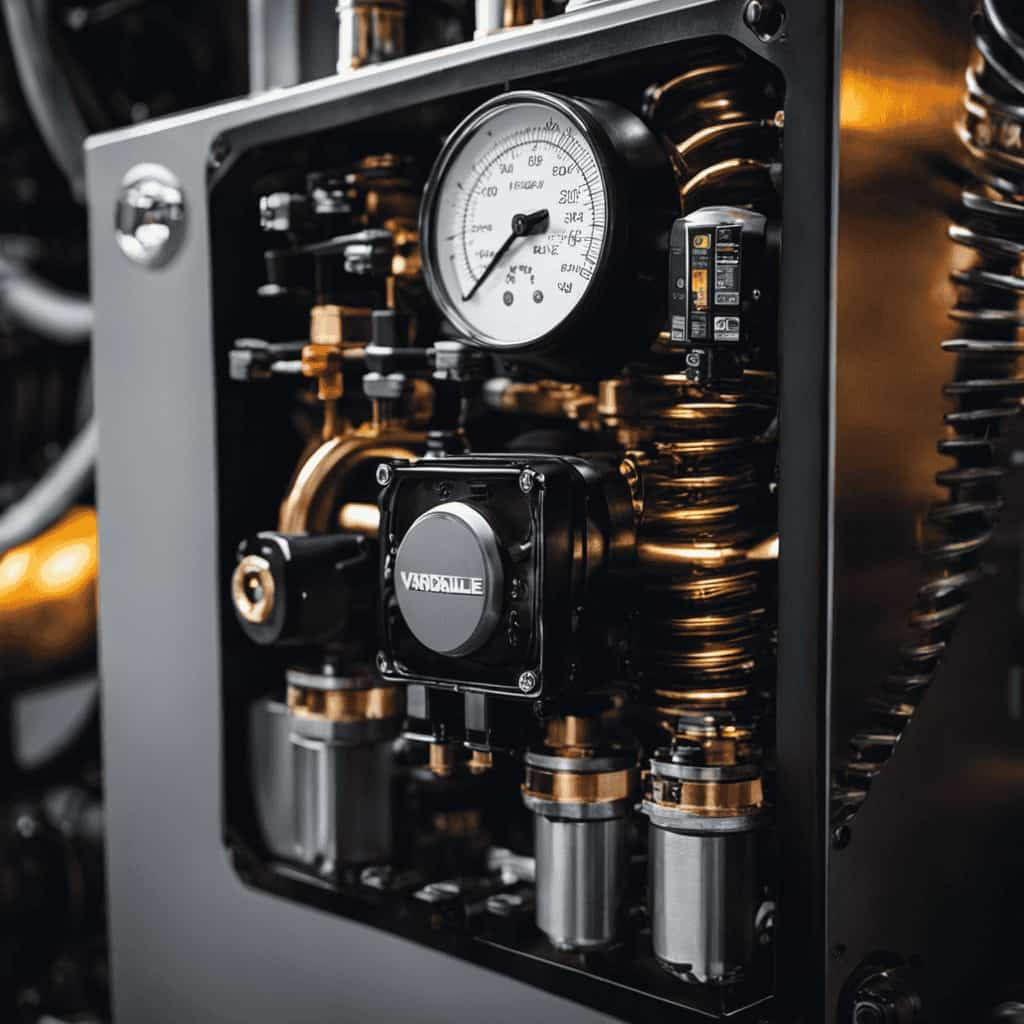
-
Check the thermostat:
Ensure that the thermostat is set to the desired temperature and that it’s functioning properly. Replace batteries if needed. -
Inspect the air filters:
Dirty or clogged air filters can restrict airflow, reducing the efficiency of your heat pump system. Clean or replace the filters regularly. -
Examine the outdoor unit:
Clear any debris or obstructions around the outdoor unit. Ensure that the unit is free from dirt and leaves, as this can affect its performance. -
Verify the refrigerant levels:
Low refrigerant levels can indicate a leak in the system. Consult a professional to check and replenish the refrigerant if necessary.
Frequently Asked Questions
What Is the Average Cost of Installing a Heat Pump System?
The average cost of installing a heat pump system depends on various factors, such as the size of the system, the efficiency rating, and the complexity of the installation.
Are Heat Pumps Noisy When They Are Operating?
Yes, heat pumps can be noisy when operating, but modern innovations have significantly reduced noise levels. With advancements in heat pump noise reduction technology, you can enjoy the benefits of a heat pump system without the disturbance of excessive noise.
Can a Heat Pump System Be Used for Both Heating and Cooling Purposes?
Yes, a heat pump system can be used for both heating and cooling purposes. This provides increased efficiency and the benefits of a versatile system. Heat pump systems offer energy savings and year-round comfort.
How Long Do Heat Pump Systems Typically Last Before Needing to Be Replaced?
Heat pump systems typically last 15-20 years before needing replacement. To extend their lifespan, regular maintenance is crucial. By following proper heat pump maintenance tips, you can maximize the benefits of these efficient heating and cooling systems.
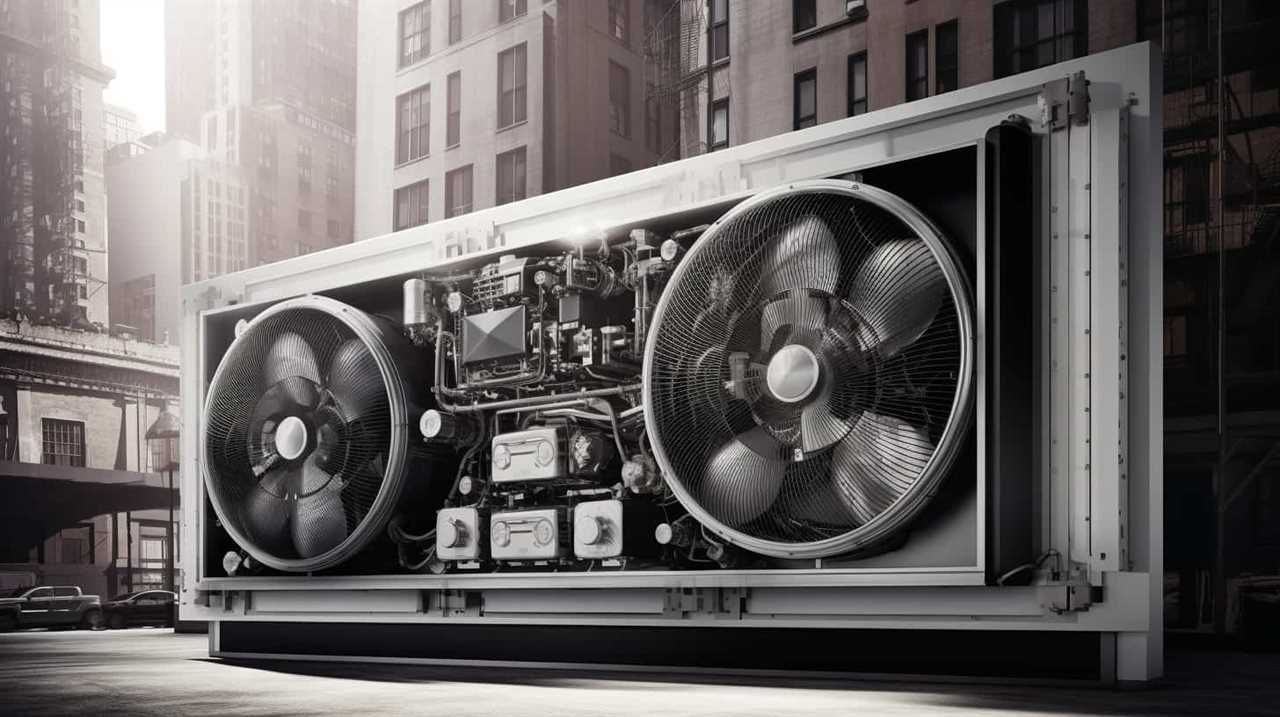
Are There Any Government Incentives or Rebates Available for Installing a Heat Pump System?
Yes, there are government incentives and rebates available for installing a heat pump system. These programs aim to encourage energy savings and provide financial assistance to those who choose more efficient heating and cooling solutions.
Conclusion
In conclusion, mastering modern heat pump system innovations is like navigating through a sea of possibilities.
With advanced compressor technology, innovative refrigerants, and variable speed systems, heat pumps have become more efficient and effective than ever before.
Smart controls and integration with renewable energy sources further enhance their performance.
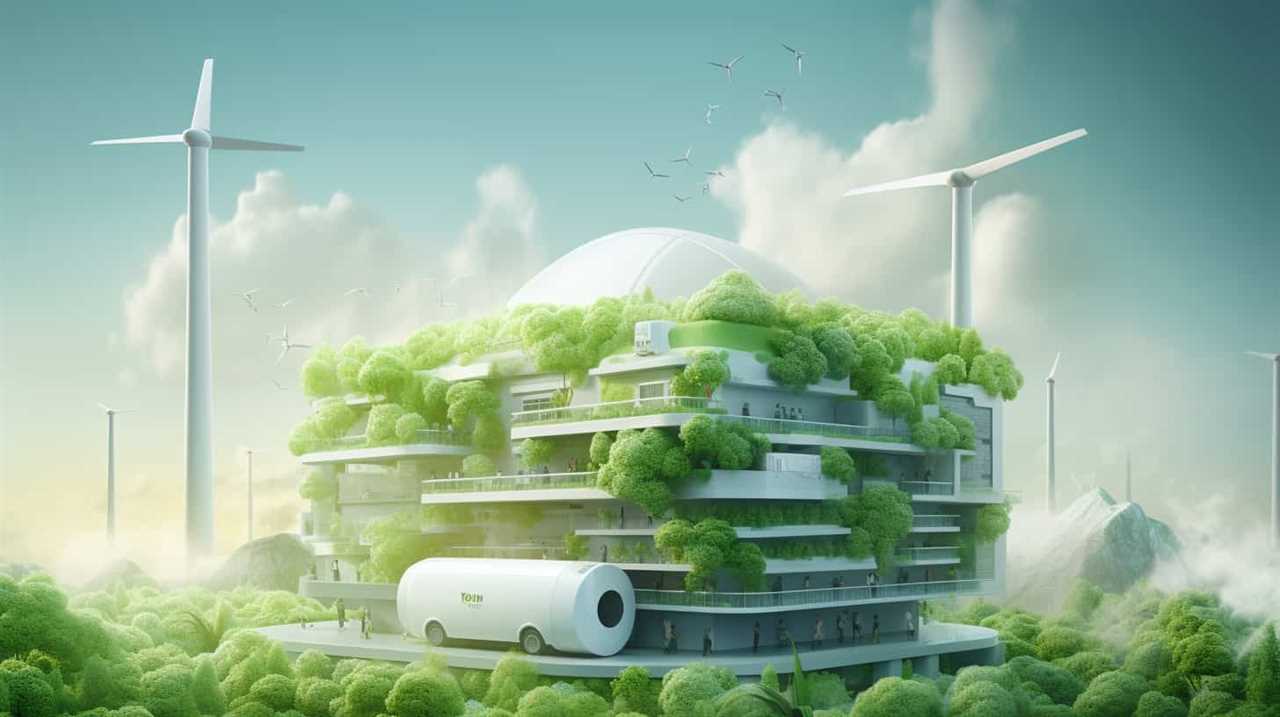
However, proper design, installation considerations, and regular troubleshooting and maintenance are crucial to ensure their optimal functioning.
Just like a well-tuned instrument, a well-maintained heat pump system can orchestrate comfort and energy efficiency in perfect harmony.




